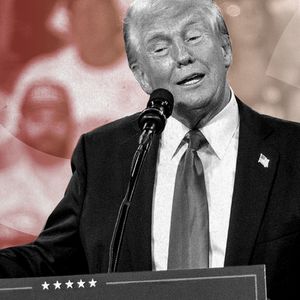DOJ Targets Sinaloa Cartel Leaders in Fentanyl and Crypto Crackdown
2 min read
The United States federal prosecutors have charged two suspected cartel members accused of running a major drug trafficking operation connected to the Sinaloa Cartel. Per the update, blockchain investigators have found links between cryptocurrency and the fentanyl trade. This shows how digital money is being used to support illegal drug activities around the world . Father and Son Accused of Leading Drug Operations According to a newly unsealed indictment by the U.S. Department of Justice, Pedro Inzunza Noriega and his son, Pedro Inzunza Coronel, have been charged with narco-terrorism and drug trafficking. Officials say the men were top figures in the Beltrán Leyva offshoot of the Sinaloa Cartel and oversaw fentanyl, meth, heroin, and cocaine shipments into the U.S. It is worth noting that the indictment describes a sprawling network responsible for moving thousands of kilograms of drugs into American cities. The charges come after a decision made by President Donald Trump in January. He approved the classification of certain foreign cartels as terrorist organizations. This decision gives U.S. authorities more power to control assets linked to these groups, including the ability to seize digital currencies connected to cartel activities. Blockchain Analysts Track Millions in Crypto While the DOJ focuses on drug crimes, blockchain reports show crypto is fueling illegal drug deals. For example, the U.S. Treasury recently accused Huione Group of helping criminals launder billions through crypto. Chainalysis, a blockchain research group, found that drug cartels, including those in Latin America, used over $5.5 million in stablecoins to pay Chinese manufacturers for fentanyl chemicals. These funds were later seized by U.S. officials in Wisconsin. Other firms, including TRM Labs and Elliptic, also found evidence that crypto is being used to mask payments. TRM Labs identified fentanyl-related vendors in 26 Chinese cities accepting crypto. Elliptic reported millions in digital payments linked to illegal drug labs amid the growing opioid crisis in the U.S. Sanctions Target Crypto Wallets Linked to Cartel Members U.S. financial regulators are also following the money tied to drug operations. In 2023, the Treasury sanctioned Ethereum wallets linked to Jimenez Castro, a suspected Sinaloa Cartel member. Chainalysis reported that chemical suppliers connected to drug production have received over $250 million in crypto since 2015. These moves show that cartels use digital tools to avoid banks and hide their money. Meanwhile, the United States Department of Justice has shut down its crypto enforcement team . This change is part of a broader policy shift under President Donald Trump. He has promised a more supportive stance toward digital assets. The post DOJ Targets Sinaloa Cartel Leaders in Fentanyl and Crypto Crackdown appeared first on TheCoinrise.com .

Source: The Coin Rise


